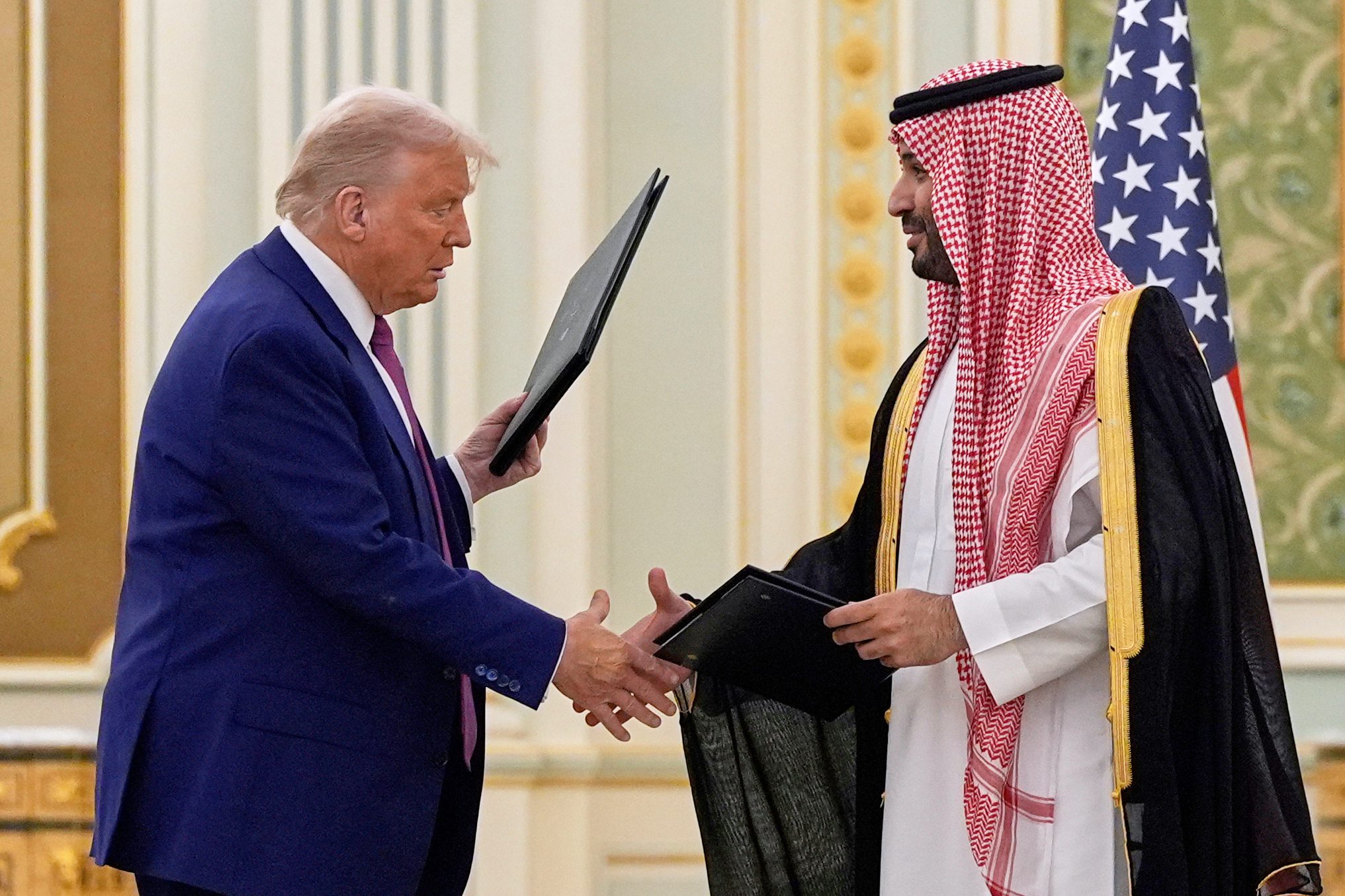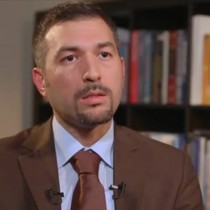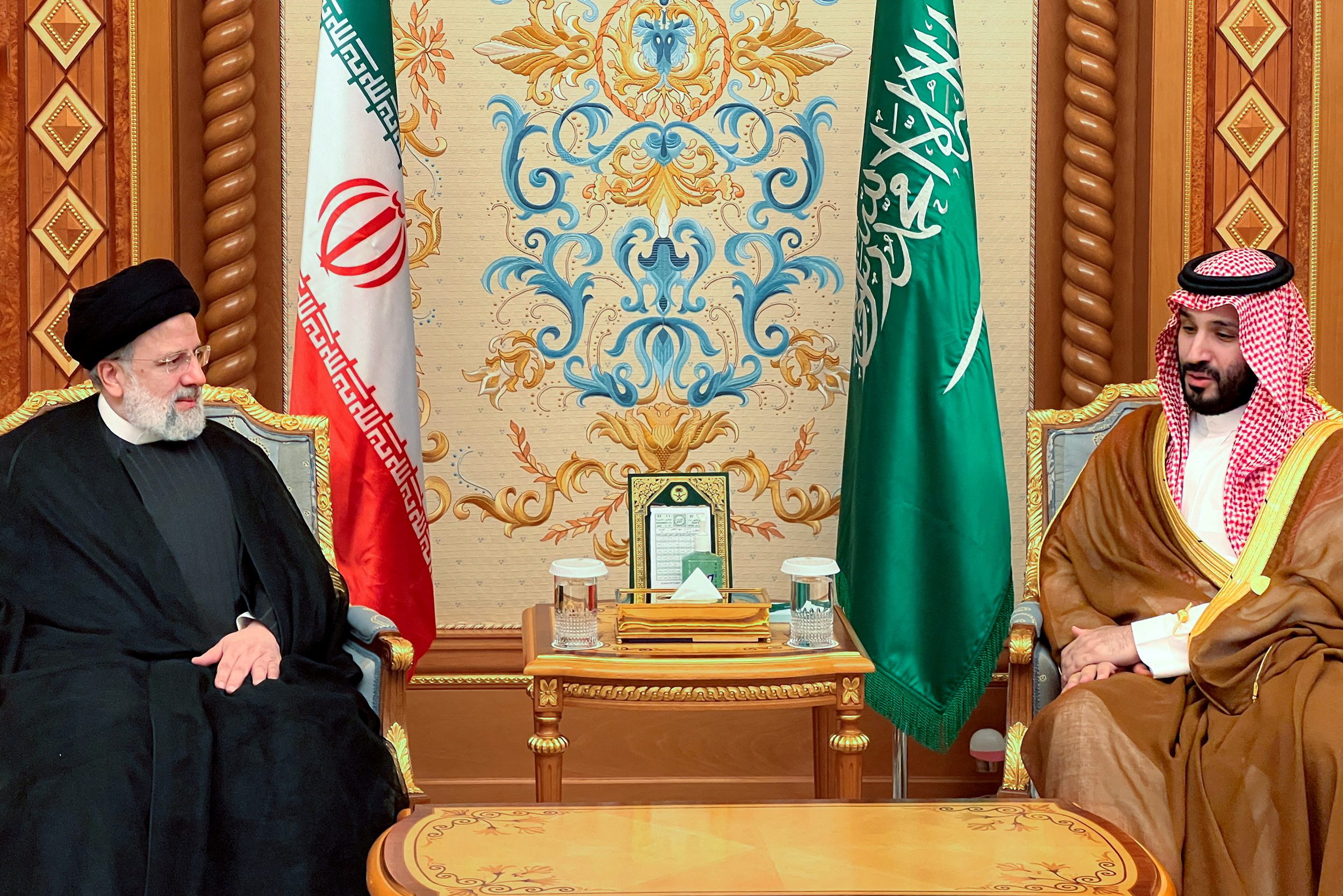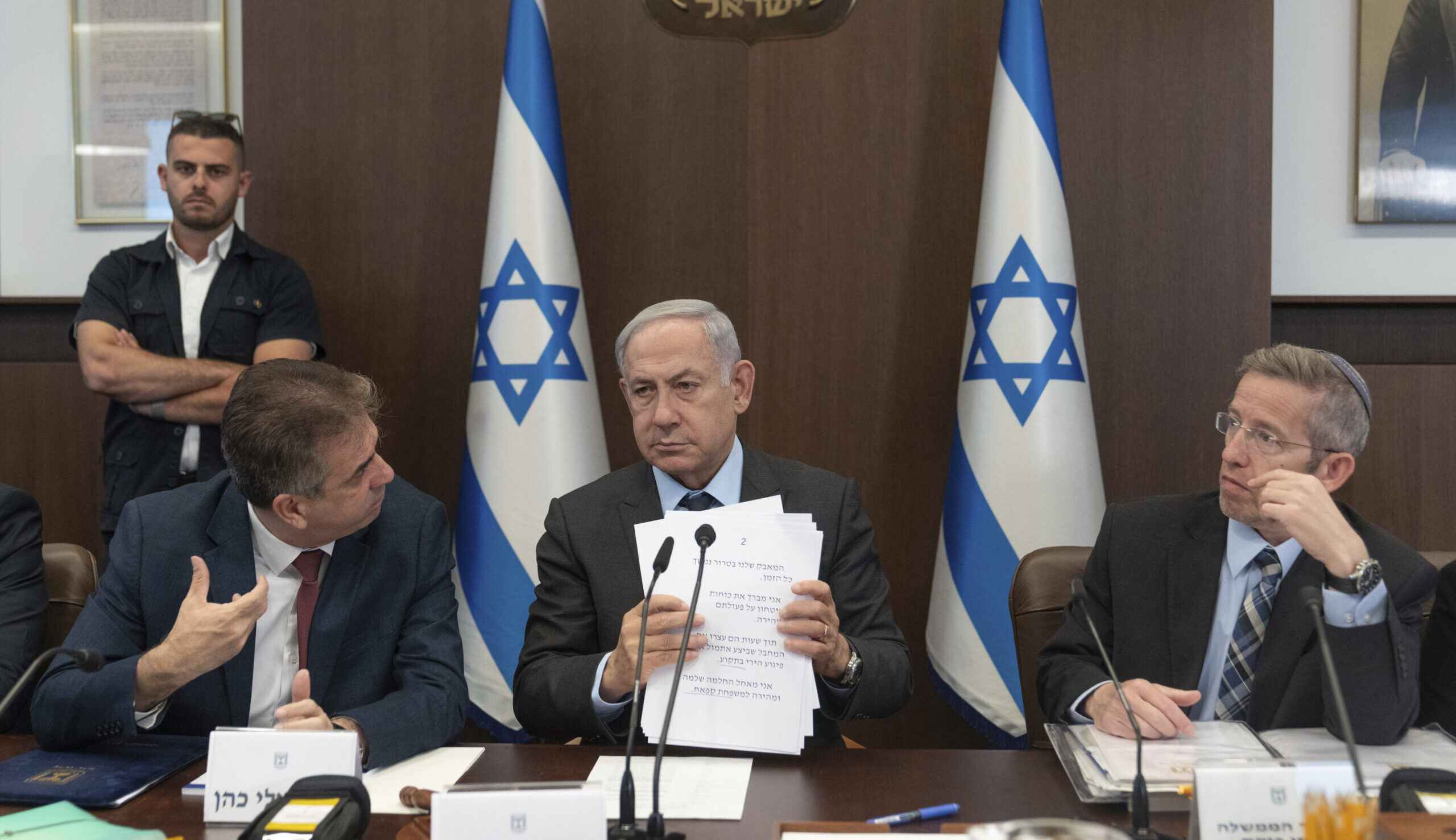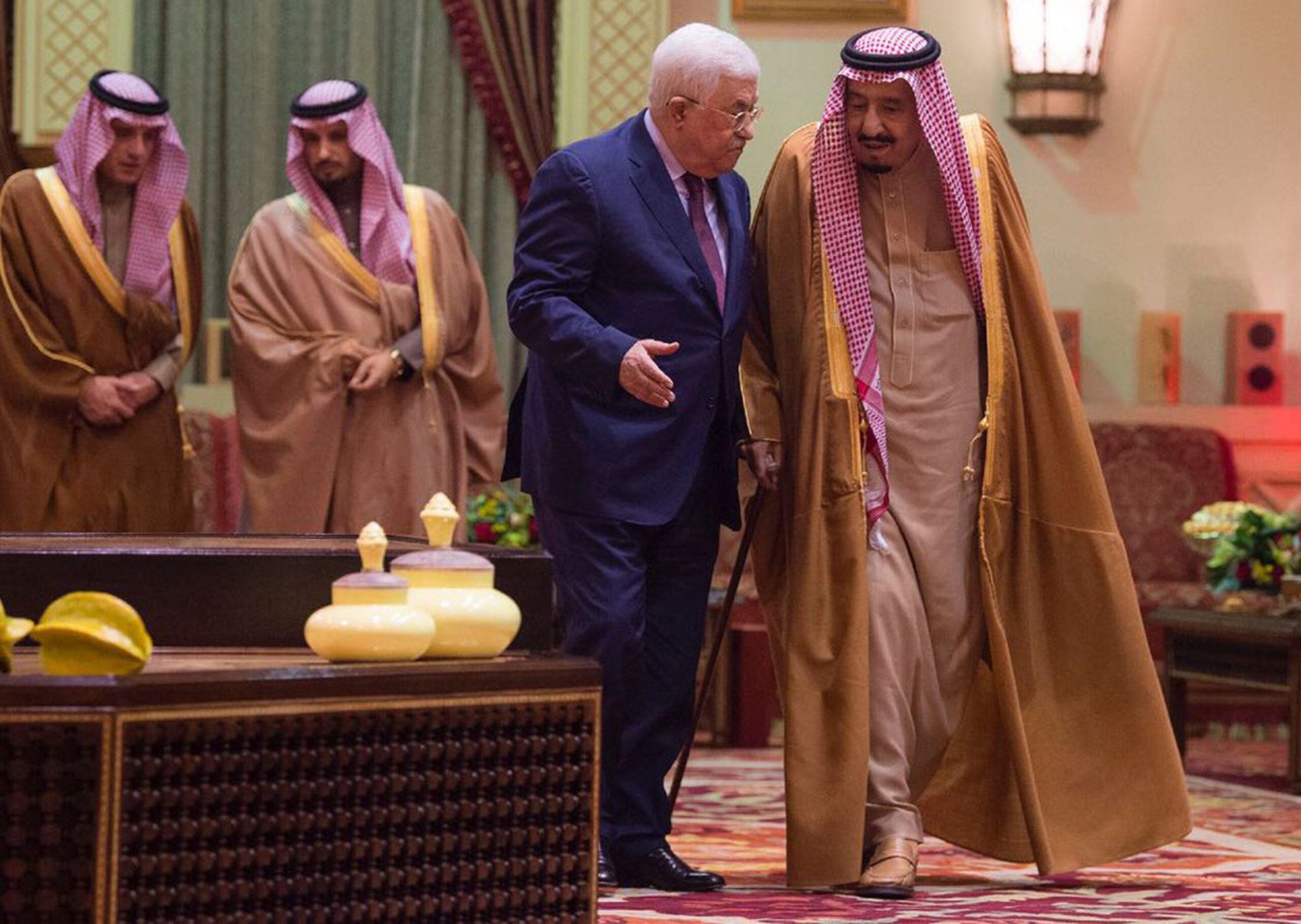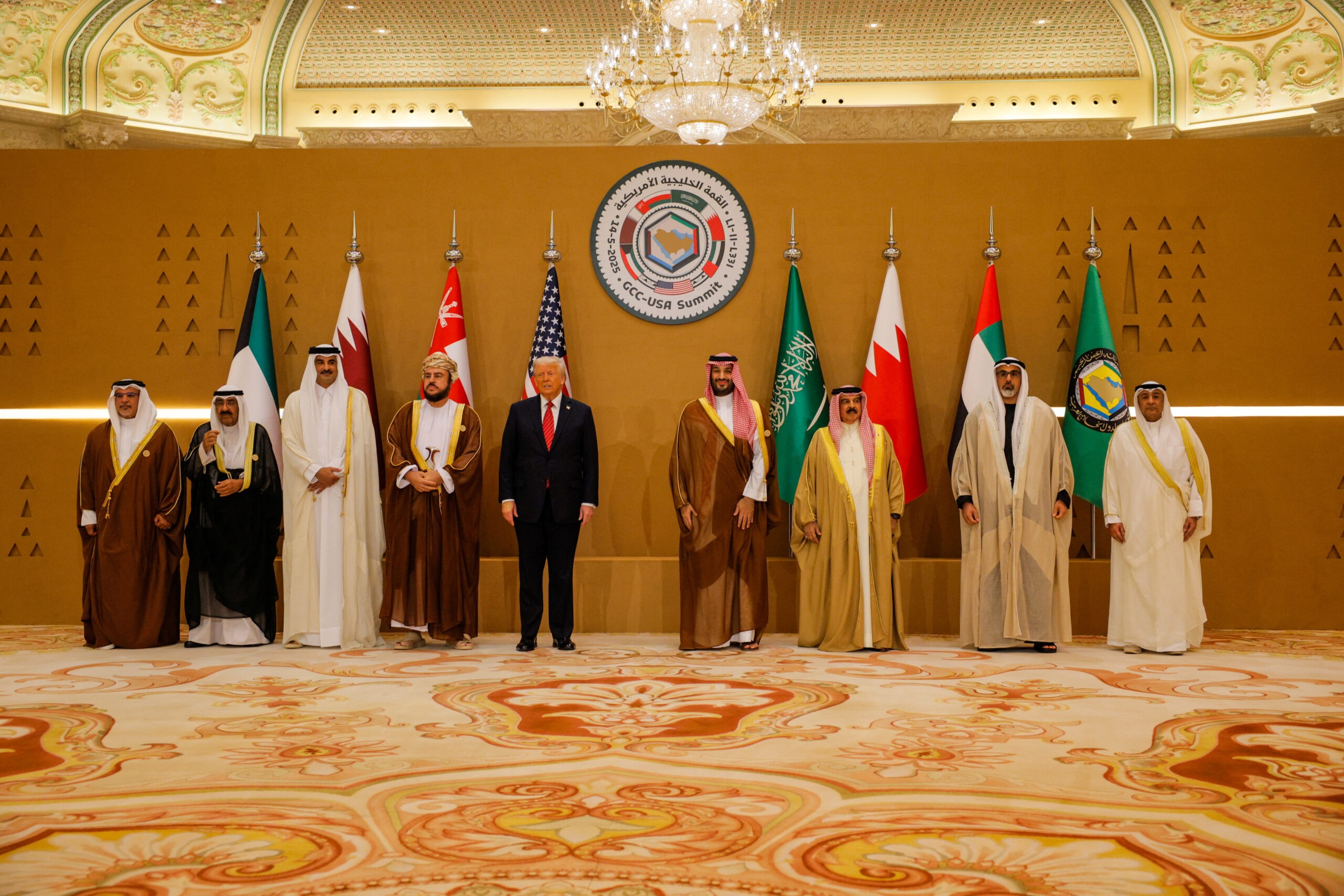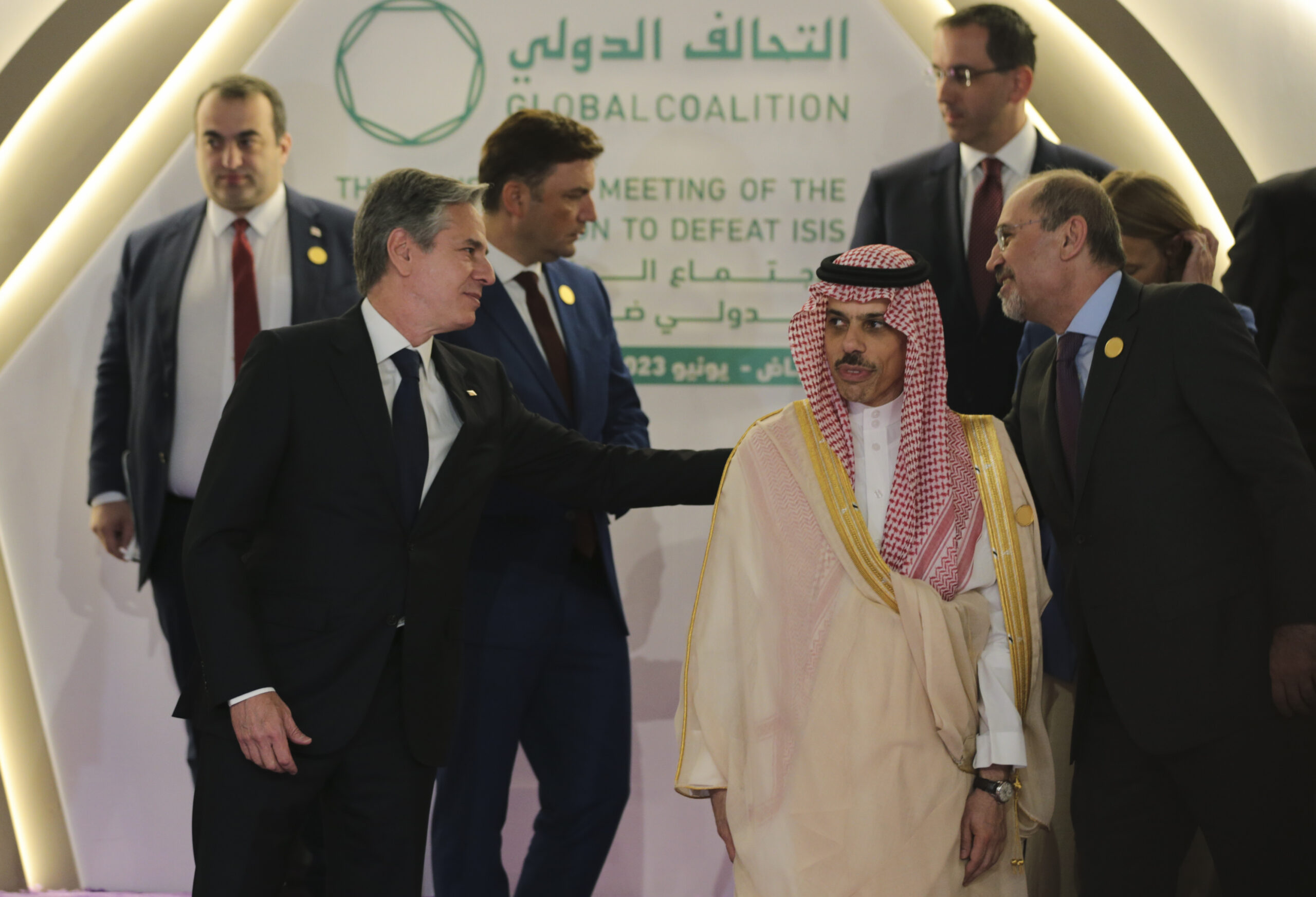In Washington, Mohammed bin Salman Aims to Elevate Defense Ties
Saudi leaders are seeking bilateral deals that advance the Saudi-U.S. relationship without the need for the normalization of relations between Israel and Saudi Arabia.
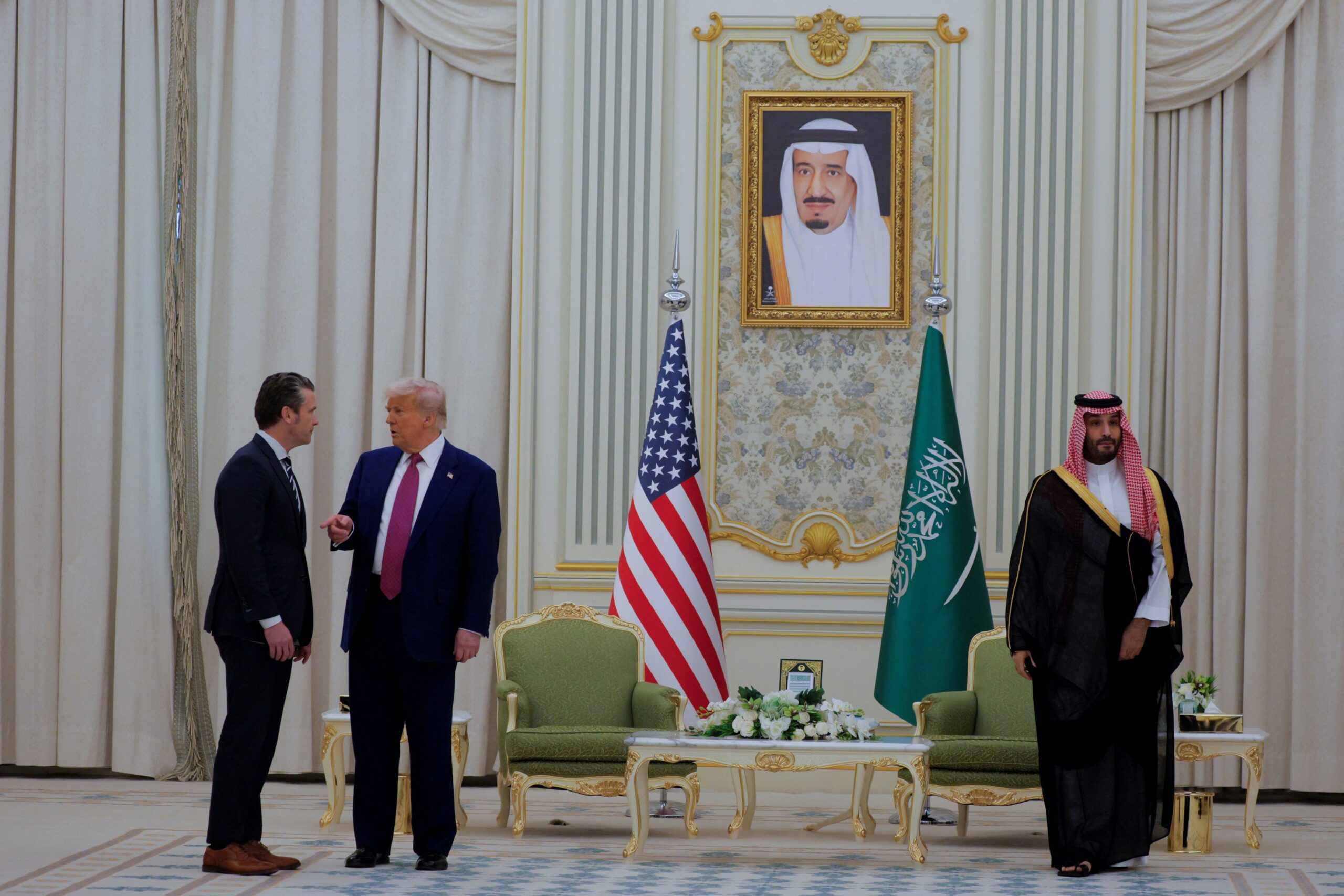
The visit by Saudi Crown Prince Mohammed bin Salman to the United States comes just six months after President Donald J. Trump’s May visit to Riyadh. Mohammed bin Salman is seeking to build upon the momentum from Trump’s visit and solidify the wide array of high-tech and business deals agreed upon in the Saudi capital. Additionally, Mohammed bin Salman aims to reach a defense pact with the United States. For the Saudis, the goal of this trip, therefore, appears to be threefold: to elevate, consolidate, and facilitate security and defense cooperation between Saudi Arabia and the United States.
Elevation
There have been decades of military cooperation between Saudi Arabia and the United States, with Saudi Arabia even hosting U.S. forces and the United States having gone to war to protect Saudi oil fields and then liberate Kuwait. However, the two states have been strategic partners – not official allies.
From the Saudi perspective, the elevation of the status of Saudi Arabia would not merely be a U.S. signal to the kingdom, it would also serve as a Saudi signal to the Washington political establishment. In an ever-evolving multipolar international system, seeking an alliance with the United States at a time when there are increasing questions regarding U.S. reliability in conjunction with the rise of great power and other alternatives, illustrates Saudi Arabia’s dedication and willingness to choose the United States as its first option. This choice highlights the Saudi ruling elites’ view of the international system. It suggests they have an asymmetric multipolar lens – that they are keen to work with other poles, such as China and Russia, and be an observer state in the BRICS organization, but will continue looking to the United States as the kingdom’s traditional security partner.
In a CNN interview just after President Joseph R. Biden Jr.’s 2022 visit to Saudi Arabia, the Saudi foreign minister alluded to this asymmetry of poles for the kingdom. Responding to a question about the potential purchase of U.S. antiaircraft weapons systems, he said Saudi Arabia “will buy missile defense systems – or any defensive weapons – from where we can find the best solutions for our needs. And we see really the U.S. as a primary partner in defense procurement. But, of course, if we can’t get U.S. equipment, we will look elsewhere.” The Saudi foreign minister communicated the kingdom’s “American first” approach to military procurement but stressed that it would not be at the expense of the “Saudi first” approach to the kingdom’s foreign relations.
This requires a balancing act for the Saudi ruling elites. And elevating the relationship to an alliance with the United States would help negate any doubts of Saudi willingness to partner with the United States. And while it wouldn’t shield Saudi Arabia from criticism within Washington, Saudi leaders feel it could strengthen counterarguments to criticism, especially in contexts in which they see U.S. support as crucial. They also believe having an alliance could help Saudi Arabia gain greater bipartisan support in Washington.
Facilitation
Why does Saudi Arabia seek a U.S. alliance when security is not guaranteed, and a security umbrella is not iron clad? This may be a conundrum, but the benefit, at least of Saudi Arabia being designated a major non-NATO ally of the United States (joining Gulf neighbors Kuwait, Bahrain, and Qatar), is in what Saudi leaders believe it can facilitate. Saudi-U.S. military cooperation has been consistent but not immune from turbulence. Obtaining the status of a U.S. “ally,” especially a major non-NATO alliance, is not only symbolic, it comes with a fair share of perks the Saudi leadership would welcome.
One of the issues that has been a source of contention in U.S.-Saudi defense cooperation is the pace of delivery of agreed upon weapons purchases. A 2024 Government Accountability Office assessment found the U.S. Department of Defense to be “alarmingly slow in delivering new and innovative weapon system capabilities.” Such an alliance can help expedite such delivery, especially navigating the bureaucratic processes within the U.S. system. However, bureaucracy is not the chief reason why such delivery times are delayed; they have far more to do with structural issues pertaining to labor and capacity.
Having delays with arms procurement is undoubtably frustrating, but the Saudis are positioned to turn this into an opportunity. The Saudis are well established in their strategy of diversifying their international relations, and so they can turn these structural delays into a win-win situation in two ways. First, the alliance should help expedite Saudi military procurements. However, when delays do happen, the Saudis can legitimately turn to other great powers in their strategic defense cooperation. Since the Saudis would have already shown their preference for the United States as a supplier, turning to other suppliers could easily be framed as due to the U.S. incapacity to deliver rather than Saudi Arabia siding with others. This, simultaneously, would strengthen Saudi strategic diversification as well. But this great power balancing must be done meticulously.
Consolidation
During the Biden administration, the Saudi, U.S., Palestinian, and Israeli leaderships were all involved in reaching a multifaceted deal centered around the normalization of ties between Saudi Arabia and Israel. The elusive normalization was predicated on significant Israeli concessions toward a Palestinian state as well as a security and defense pact between the United States and Saudi Arabia. The deal was also expected to involve U.S.-Saudi nuclear cooperation. While there was no final agreement regarding the details of this “grand bargain,” which would have brought about a cease-fire in Gaza and a Saudi-U.S. bilateral deal, former National Security Advisor Jake Sullivan said that “the integrated vision is a bilateral understanding between the U.S. and Saudi Arabia combined with normalization between Israel and Saudi Arabia, combined with meaningful steps on behalf of the Palestinian people.”
The Saudi visit aims to consolidate that defense and security “understanding” via an official alliance, as symbolic as it may be. While the Saudis had previously wanted a ratified defense treaty, they would consider a consolidated security deal a strategic win for the visit, as it would give the Saudi leadership a better understanding of how to orchestrate its deterrence capability amid an increasingly turbulent Middle East. Equally significant would be a deal on Saudi-U.S. nuclear cooperation that enables the kingdom to enrich uranium for economic purposes – this is perhaps the most sensitive of files in the Saudi-U.S. bilateral relationship.
What Does This Mean for Saudi-Israeli Normalization?
One of the reasons the Saudi ruling elites would like to consolidate these understandings is due to the unlikelihood of Saudi-Israeli normalization. They see Israel now as just too toxic to deal with due to the merciless Israeli campaign in Gaza and genocidal rhetoric coming from the extremists in the Israeli government. The September Israeli attack on Qatar simply compounded the anti-Israeli sentiments within Saudi Arabia. Saudi leaders can’t presently even entertain the discussion of normalization with Israel. In Saudi Arabia, Israel is not only viewed as controversial but as the kingdom’s biggest threat and a regional destabilizer.
With normalization unforeseeable in the near future, securing the 67 votes needed in the Senate for ratification of a defense treaty extremely difficult, and a U.S. president who is angling to reduce U.S. military commitments abroad, Saudi leaders are seeking bilateral deals that advance the Saudi-U.S. relationship without the need for Saudi-Israeli normalization. If Saudi Arabia wants to further elevate the bilateral relationship into a treaty framework, then Saudi-Israeli normalization still would be necessary. But this would depend on whether the Saudi leadership believes a U.S. treaty is worth all the baggage that such a normalization would bring, especially in light of the lack of trust in U.S. commitments. If the Saudi leadership does decide to go for a treaty with the United States in the future, then a Saudi-U.S. alliance framework can be a solid foundation for fleshing out the details of that treaty. For now, the developments in Saudi-U.S. bilateral relations suggests that the question of Saudi-Israeli normalization is a matter of if – not when.
The views represented herein are the author's or speaker's own and do not necessarily reflect the views of AGSI, its staff, or its board of directors.







